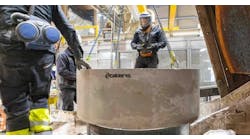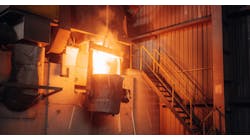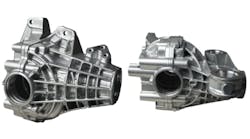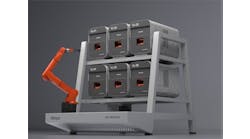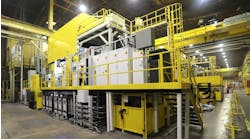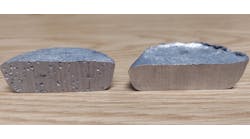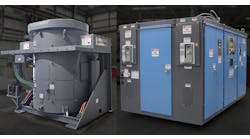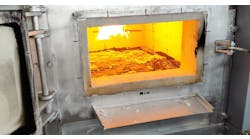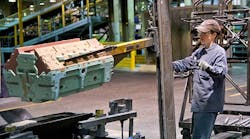General Motors Co. is phasing out ductile iron production at is Defiance (OH) Casting Operations, which will lead to a loss of about 150 positions over the coming 18 months, according to several sources. The automaker had previously made the decision to cease production of cast-iron engine blocks and cylinder heads at Defiance, which is due to end about 135 jobs.
Defiance Casting Operations will continue to produce aluminum engine blocks and heads for GM’s six- and eight-cylinder engines.
The Defiance complex has been melting iron for engines and powertrain parts since 1948, and currently it produces blocks, heads, and crankshafts for General Motors passenger and light truck product lines.
Defiance has been the object of some significant capital investment by General Motors in recent years, specifically a series of projects in 2010-2011 to add precision-sand casting capability for GM’s all-aluminum Ecotec engine series, for cars and light trucks. Those efforts totaled about $235 million, according to concurrent statements by the automaker.
The move away from cast-iron engines and powertrain parts is consistent with broader trends in automotive design, and the fuel-exhaust regulations influencing those trends.
In its statements on the future plans for Defiance, General Motors characterized ductile iron as “no longer a core business,” noting that current production volumes do not support profitability for the related product lines.
In addition, it indicated that the capabilities of the ironmaking operations at Defiance are not equal to global standards for competitiveness, and that new equipment upgrades to produce ductile iron in the volume and capacity necessary to achieve global competitiveness would be “cost prohibitive.”
